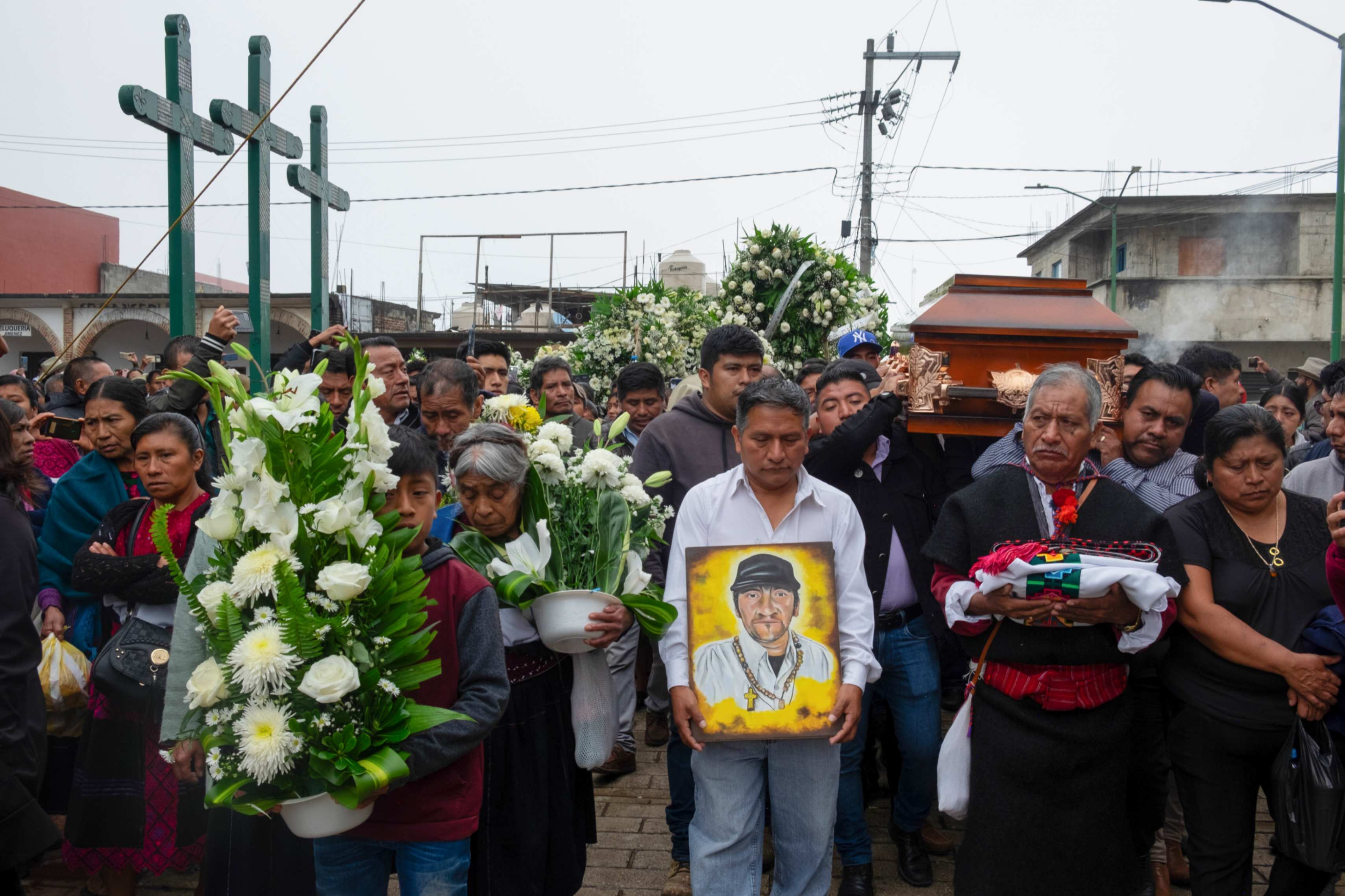
People take part in a funeral procession in San Andrés Larráinzar, Chiapas state, Mexico, on Oct. 22, 2024, for Catholic priest and activist Fr. Marcelo Pérez. The priest was killed for confronting criminal gangs. (AP/Isabel Mateos)

Whenever we dare to reflect on the invitation to holiness, we often think back to the lives of people from past centuries, highlighting their nearly unattainable virtues and perhaps hiding their weaknesses and vulnerabilities.
However, during Pope Francis' pontificate, we have become more aware of recognizing holiness in young and contemporary people. Still, I don't want to dwell on the saints the church has canonized after long processes of investigation to verify their merits and miracles.
Respecting the tradition of the church and with a desire to go a step further in reflecting on holiness, I want to talk about "everyday" saints — those wise, ordinary people who often live in anonymity.
These people have been able to sharpen their senses to perceive the presence of God in their lives, in their communities of faith, in the events of daily life and in the simple sharing of life in the countryside and in the city.
Today's saints go beyond merely professing a religious creed; they are attentive to the Spirit's movement in actions for the common good and the creation of dignified spaces for life.
The First Letter of Peter 1:15-16 reminds us that, as followers of Jesus, we are all called to live from this attitude of holiness: "But just as he who called you is holy, be holy yourselves in every aspect of your conduct, for it is written: 'Be holy, because I am holy.' "
Why restrict holiness to the realm of religion when there are so many people of goodwill, of different ages and cultures, who live their lives as bread broken and shared, in the style of Jesus?
Holiness is a virtue inherent to our essence, which leads us to let out the goodness that we all carry within us, to live in harmony with all of creation, and to demonstrate through our lives the grace of being called divine creatures, even in the midst of our fragility.
I am reminded of the loving gestures of so many simple men and women who have given their lives deeply in caring for creation and fighting for justice and the rights of those oppressed by unjust systems. They have developed the capacity to connect with reality and suffering from within, and with humility they have placed their gifts and talents at the service of others.
I think of midwives, nurses, doctors, farmers and students who, from the periphery and in places of conflict, continue to serve and give their lives. I also think of mothers, fathers and grandparents, who have sustained the faith, hope and struggles of their people. I think of teachers who travel hundreds of kilometers to create and awaken consciences through their teachings. And there are countless others who have touched the wounds of those helped by Samaritans along the way.
Why, then, recognize as saints only those whom the church elevates to the altars? Why restrict holiness to the realm of religion when there are so many people of goodwill, of different ages and cultures, who live their lives as bread broken and shared, in the style of Jesus? These are questions I share so that, as we reflect, we may also reach our own conclusions.
Today, the saints who inspire me are ordinary people who are still living and who, despite their frailties, do good and reveal God's presence in profound ways. They are people who have learned to breathe in life deeply, and from the core of their being, attune themselves to the heartbeat of God within humanity.
Advertisement
Holiness is a way of living, where we are being molded according to the will of God revealed to us by Jesus. On this path of holiness, we are invited to cultivate traits that lead us to live more fully, guided by freedom, justice, love, friendship, selfless service, dignity, the common good, and equal rights and conditions.
The struggle to eradicate violence, exclusion and discrimination carries these traits, characteristic of Jesus, as its banner. For this, we need to stop associating holiness only with rites and actions reserved for a few.
We must begin to live holiness as an invitation to which all of us, as human beings, are called, to be saints like the one who created us.
One everyday saint I remember is Ofelia — a humble, hardworking woman and a determined mother with a strong yet kind spirit. She devoted herself to caring for her family, including loved ones with special needs, and also to helping homeless children, adolescents, young people, orphans and victims of violence. Her love for others led her to become a motherly presence, offering them empathy and compassion.
From a young age, she served as a catechist for both children and adults, drawing people in with her warm, gentle manner — even those who had once claimed they didn't believe. Today, she remains deeply committed to empowering women in her community, especially those who have endured violence.
Her encounter with Jesus in her youth inspired her to make concrete choices in favor of those most in need, as she knew firsthand the challenges of poverty and hardship. Though she still tends to take others' struggles to heart, at 77 years old, she continues to inspire other women with love and hope, fostering a spirit of service in the way of Jesus.
Holiness is a grace within us all. Let's not limit it to concepts or posthumous recognition. Let's teach our present generation a new way to embody holiness — one rooted in humility and kingdom values. There's joy in recognizing that anonymous saints far outnumber those canonized by the church.
This column is also published in Spanish.





